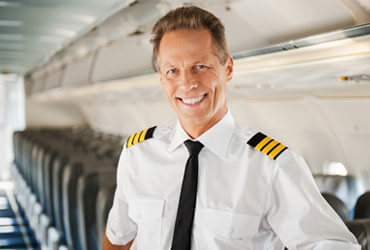
Aviation safety is a sensitive issue for both the industry, Washington D.C. politics and the public, therefore, aviation airline pilots are held to the same safety sensitive standard as physicians and surgeons, particularly when they struggle with addictions.
It certainly is a privilege to fly a plane, and when an airline pilot is impaired in any manner they need to seek help immediately! Currently, there is a rule that each aviation airline pilots must follow if they do consume alcohol – it’s known as the “bottle to throttle rule.” This rule requires a pilot to wait 8 hours after their last drink and when they step into the cockpit. We think this rule should be much more stringent and a 24 hour rule should be in place for aviation airline pilots who consume alcohol prior to operating aircraft.
What is HIMS
HIMS is an occupational substance abuse treatment program, specific to commercial pilots, that coordinates the identification, treatment, and return to work process for affected aviators.
In the 1970’s, a medical research project called HIMS (Human Intervention Motivation Study) was spearheaded by the Air Line Pilots Association (ALPA), a labor union, and funded by the National Institute for Alcohol Abuse and Alcoholism (NIAAA), a federal agency. This study was designed to test a program for dealing with the presence of alcoholism in the airline pilot population. Several factors prompted the development of a pilot specific model. The commercial aviation environment was not well suited for a traditional on-the-job supervisory program, and it was believed a recovering pilot’s ability to function effectively was best observed by fellow pilots.
Accordingly, a peer identification and referral system seemed well suited for developing a pilot-centered, confidential, participatory program. Given the sensitive nature of a pilot’s responsibilities and the interrelationship between medical and technical performance standards, it was apparent that involvement of the airline, the FAA, and peer pilots was essential to the success of the program. Since its inception, over 4,500 professional pilots have been successfully rehabilitated and returned to their careers.
Providence Treatment’s Professionals Program for Aviation Airline Pilots
Providence Treatment has many years of experience in working with HIMS program and their aviation medical examiners (AMEs). When we receive a request from an AME , we perform an independent assessment with the private or commercial airline pilot. This assessment may take from one (1) day, depending on the complexity of the case. If a substance abuse or psychiatric problem is defined, then the aviation airline pilot is given a choice of treatment centers suited to his/her problem. The aviation airline pilot attends in-patient or residential treatment for at least 28 days, followed by 3 years or more of weekly aftercare and monitoring. Providence Treatment currently has aviation airline pilot and air traffic controller in our group and/or individual therapy or treatment.
At Providence Treatment, we support each aviation airline pilot by offering a quality, clean and sober environment, individual and group treatment and professional monitoring. Aviation airline pilots are extremely passionate individuals about flying and anything aviation, so we want to support any airline pilot who may be an alcoholic or drug addict to receive effective treatment and return back to the cockpit when they are ready and safe.
Aviation airline pilots who become addicted to drugs are no different than any other addict in the general population, other than their safety sensitive profession. When an airline pilot is impaired, hundreds of lives are in their hands and all it takes is single mistake, or a series of mistakes for a disaster to occur. We want to ensure safety in the air as well as supporting each pilot and their need for treatment, if necessary. Providence Recovery House provides the care and sober environment to ensure a sustainable addiction recovery for its airline pilot residents in Philadelphia, PA.
If you or you know an aviation airline pilot who is in need of addiction treatment and/or sober living, please contact us at (484) 486-8074 to inquire about our professionals program.








